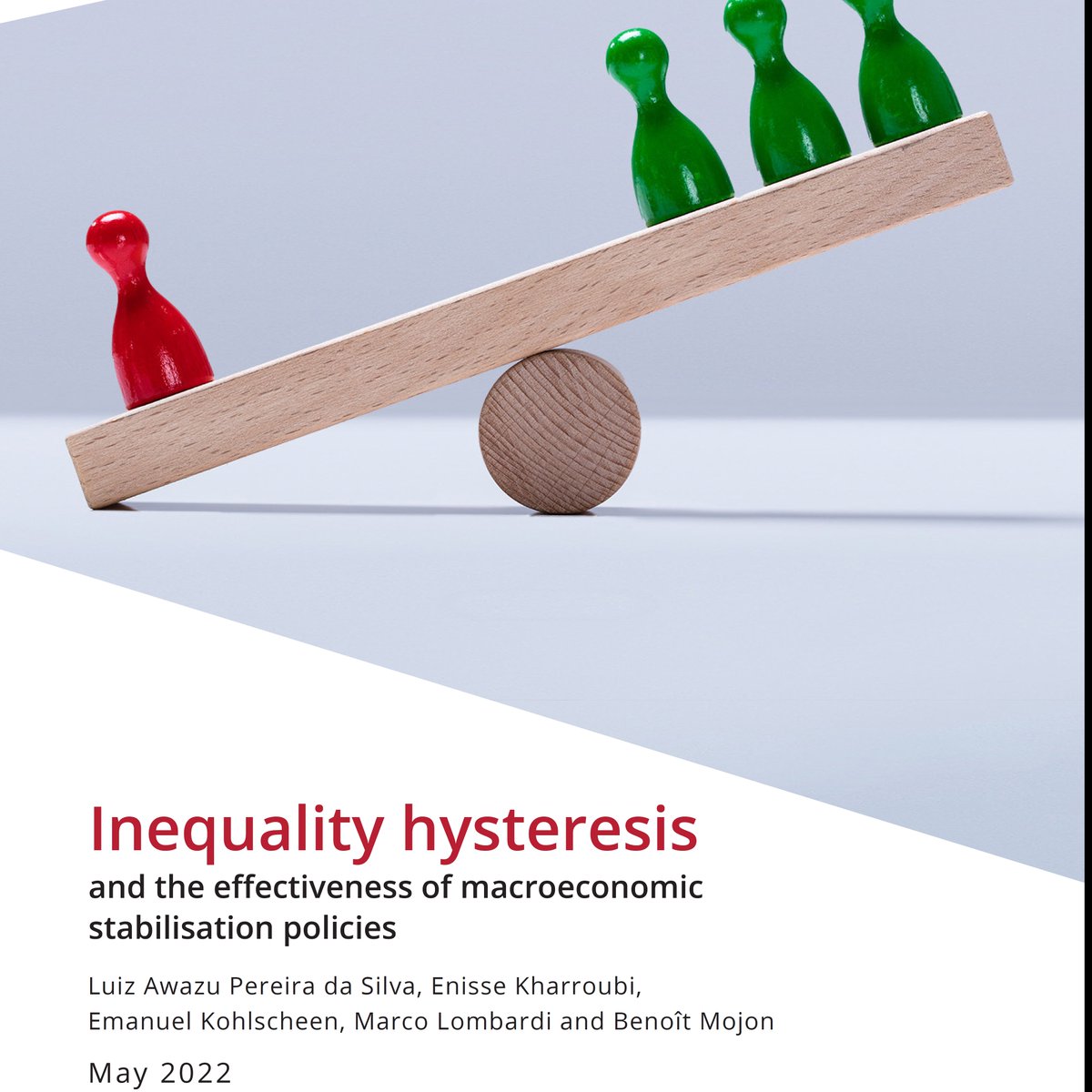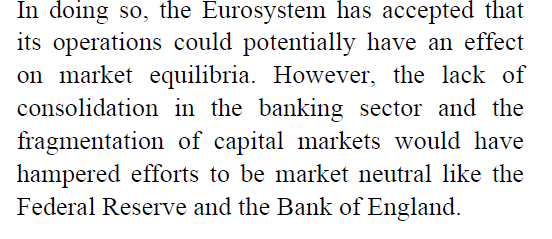
Philosophy & Economics, the ESG anthropocene, technocrats and more | “Non-profit finfluencer” | @jvtk.🟦 .soc | @UvA_AISSR @Politics_UvA @GRI_LSE
How to get URL link on X (Twitter) App


 The history of the international euro is dominated by an ideal of market neutrality. The market was meant to favour the euro as a currency for trade and store of value solely due to the ECB's successful pursuit of price stability
The history of the international euro is dominated by an ideal of market neutrality. The market was meant to favour the euro as a currency for trade and store of value solely due to the ECB's successful pursuit of price stability

 Bateman shows that widespread ideas about Fed funding to the treasury are deeply misguided: monetary financing has been a historically invariant feature, also in the US. But the extent is quite enlightening.
Bateman shows that widespread ideas about Fed funding to the treasury are deeply misguided: monetary financing has been a historically invariant feature, also in the US. But the extent is quite enlightening. 

 His recent blog targets a nice @NewYorker piece by @zachdcarter that sets out a journalistic, but factual and precise account of what went down last year
His recent blog targets a nice @NewYorker piece by @zachdcarter that sets out a journalistic, but factual and precise account of what went down last year 


 The special issue of Accounting, Economics, and Law: A Convivium edited by @MatthiasThiema3 is turning into a great debate over the future of the EU's monetary constitution
The special issue of Accounting, Economics, and Law: A Convivium edited by @MatthiasThiema3 is turning into a great debate over the future of the EU's monetary constitution

 2/ Central bankers are well aware that raising rates may not really help fight today's inflation.
2/ Central bankers are well aware that raising rates may not really help fight today's inflation. 
 We show that the ECB’s secondary mandate was discussed regularly until 2002, but then dropped almost entirely from central bank speeches.
We show that the ECB’s secondary mandate was discussed regularly until 2002, but then dropped almost entirely from central bank speeches. 


 The idea that monetary sovereignty consists in issuing and regulating a currency is deeply anachronistic; it rests on a quasi-Westphalian vision of state money and independent monetary jurisdictions.
The idea that monetary sovereignty consists in issuing and regulating a currency is deeply anachronistic; it rests on a quasi-Westphalian vision of state money and independent monetary jurisdictions. 
 Raising interest rate *may* (caveats apply) bring inflation down today, but would cut off investments in renewable energy, energy efficiency and climate adaptation. /2
Raising interest rate *may* (caveats apply) bring inflation down today, but would cut off investments in renewable energy, energy efficiency and climate adaptation. /2

https://twitter.com/deyris_j/status/1536370949343260673of both the primary mandate (long term price stability; also part of the new strategy) and reducing the negative side-effects of high interest rates on long-term investments (which are needed for the green transition and hence part of the proportionality assessment).

 The key idea is that inequality and recessions exacerbate each other:
The key idea is that inequality and recessions exacerbate each other: 



 As the @ECB recently acknowledged “few institutions have put in place Climate and Environmental risk practices with a discernible impact on their strategy and risk profile.” Banks are sleeping, greenwashing is rampant. /2
As the @ECB recently acknowledged “few institutions have put in place Climate and Environmental risk practices with a discernible impact on their strategy and risk profile.” Banks are sleeping, greenwashing is rampant. /2 

 In 2005, the ECB’s treatment of sovereign debt became market-based. From then on, any government whose debt lost the approval of Moodys, S&P and @FitchRatings would no longer be accepted by the ECB /2
In 2005, the ECB’s treatment of sovereign debt became market-based. From then on, any government whose debt lost the approval of Moodys, S&P and @FitchRatings would no longer be accepted by the ECB /2

 In 2020, the European Central Bank funded 92% of the pandemic deficit incurred by Member States fighting the pandemic – I show that this is monetary financing in all but name
In 2020, the European Central Bank funded 92% of the pandemic deficit incurred by Member States fighting the pandemic – I show that this is monetary financing in all but name

